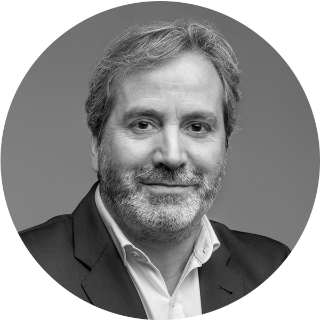

How deeply is AI changing our society?
Insights from the Good Hack at VivaTech 2024
The realm of artificial intelligence stands at the precipice of societal transformation, presenting a complex tapestry of challenges and avenues for innovation. The permeation of AI into various strata of life signals a redefinition of traditional practices, trust paradigms, and the very fabric of societal functionality. Entities engaged with AI—from tech conglomerates to emergent start-ups, policy framers to the general public—must brace for the endurance test ahead. The velocity of AI's evolution over the forthcoming years will likely outstrip the adaptive capacities of many. However, for some, it signals opportunities for prosperity and the creation of a transformed societal structure.

AI is widely adopted in France, viewed as a positive disruptor despite mixed trust levels.
The Good Hack, hosted by VivaTech, stands as the largest hackathon globally, where participants collaborate to define AI's contribution in addressing pivotal societal issues. Based on this survey, this report discusses public's significant AI apprehensions, aiding businesses and policymakers. Four themes are examined: AI and Trust, AI and Environment, AI and Health, AI and Employment.
In French society, AI is widely used and generally viewed as a positive force despite mixed levels of trust. Many admit to using AI, yet they lack a deep understanding of it. However, 78% are keen to learn more. Furthermore, participants believe AI will have favorable effects on employment, the environment, and health. Indeed, 80% worldwide concur on AI's potential benefits. On the other hand, trust in AI's impact on democracy is evenly split. Age also influences perceptions; those under 25 and those aged 35-55 tend to be more skeptical, while individuals 25-35 are more optimistic. In summary, knowledge gaps persist, but there remains a strong desire for a better understanding of AI-driven applications and implications.

Trust in AI is sharply divided, showing 48% of participants expecting a negative impact on trust and democracy, while 50% see it as positive. Broader studies reveal only 31% trust AI globally, and just 40% think its benefits will outweigh risks such as job displacement and privacy concerns. While some see AI's advantages in healthcare and efficiency, many are wary of ethical and unintended issues. Age influences perceptions: 45% under 25 view AI negatively, 47% of those aged 25-35 are positive, possibly due to their professional exposure, and 49% aged 35-55 tend to be negative. Among undisclosed ages, 39% foresee a positive impact.

"By employing sophisticated algorithms to cross-reference and verify data from multiple credible sources, AI can significantly reduce the spread of misinformation."
AI will positively impact our lives in many fields.
AI is set to revolutionize multiple aspects of our lives, enhancing trust, enabling more inclusive participation, and transforming services. It will allow better understanding and integration of diverse perspectives in both governance and the business domain. In terms of service delivery, AI will refine both customer-facing and internal processes, enhancing efficiency and reliability. AI's supervisory role will also become crucial in safeguarding against misinformation and bias, with potential for AI to eventually supervise other AI systems. Education will benefit from AI through personalized learning and verifiable information sourcing. Employment will see a shift with AI augmenting jobs, thus boosting productivity, and the emergence of new AI-related roles. Lastly, AI will help eliminate biases in recruitment processes, fostering fairer and more efficient workforce management.
AI will bring “quality of life”
AI is poised to transform healthcare by enhancing patient care with virtual assistants and developing personalized treatment regimens. In the pharmaceutical realm, AI expedites pre-clinical drug discovery while further validation is needed in clinical stages. To combat climate change, AI is optimizing processes to reduce emissions in high-impact sectors like transportation, construction, and industry, with applications like digital twins and advanced analytics. AI also bolsters R&D for green technologies, particularly in producing green hydrogen and managing smart grids. Moreover, it's being used in the building industry to spot structural issues and inefficiencies and in environmental conservation efforts like water management and early fire detection, underlining its comprehensive role in sustainability. In France, the transportation, manufacturing, and construction sectors are the top three contributors to carbon emissions, collectively accounting for 56% of the nation's total, and would be the biggest beneficiaries of AI.

"When considering the issue of climate change, it becomes evident that decarbonization represents the most significant challenge faced by our generation. There is a real conviction that AI can contribute positively in this realm, aiding in decarbonization efforts and energy optimization – essentially assisting us in creating a more sustainable world."
AI also brings some important risks that could negatively impact human societies.
AI's risks include spreading misinformation through deepfake technology and biased algorithms, leading to public distrust. AI "hallucinations" can create convincing but false information, while AI biases can reinforce harmful stereotypes. The technology's manipulation risks skewing information and increasing social divisions. Ecologically, AI's high energy demand contributes significantly to CO2 emissions and environmental degradation. Moreover, AI automation threatens jobs, particularly in sectors with routine tasks, with potential to exacerbate social inequalities. Addressing these issues requires stringent regulation, ethical AI deployment, and adaptive workforce strategies.
Register now to access the full publication and delve into the ways artificial intelligence is transforming society and opening new avenues. Furthermore, you get regular news and updates directly in your inbox.










_person_320.png)
_person_320.png)
